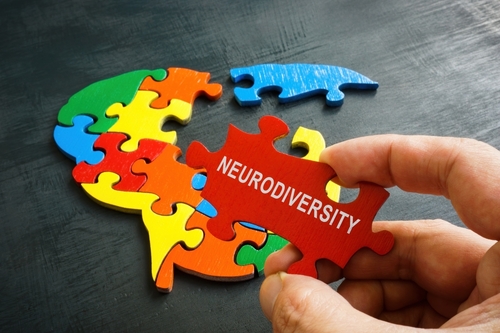SPONSORED COPY
Why should you support neurodiversity? According to the Head of Mental Wellbeing at Bupa and clinical psychologist, Dr Naomi Humber: “Neurodiversity is sometimes associated with fantastic creativity and the ability to drive innovation by seeing things from a different perspective and thinking outside the box.”
Dr Humber adds: “That’s why it’s also essential to promote awareness and understanding in the workplace and embed an empathetic and person-led culture that supports and champions neurodiversity.”
Unfortunately, the stigma around neurodiversity is still an issue. Research from the Institute of Leadership & Management shows there are still some barriers that employers need to address to gain the most benefit from a neurodiverse workforce.
The study found that only one in four people would be comfortable recruiting and directly managing someone who is neurodivergent. When breaking down neurodivergence into specific traits, 69 per cent of those diagnosed with dyspraxia, 60 per cent with autism and 53 per cent with dyscalculia, felt that colleagues behaved in ways that excluded them, yet only 28 per cent of neurotypicals believed this to be true.
How can you change this in your workforce?
Dr Humber says: “It’s important to get to know the individual and understand their challenges, their strengths, their skills, their uniqueness.”4
With recent developments in technology, it is now easier and cheaper than ever before to use inclusive software. From speech-to-text and text-to-speech tools, daily planners, timers, focus apps and mind-mapping software, many people, whether neurodivergent or not, can be helped with the right tools and understanding.
But tools and software are just one of the ways neurodivergence is alleviated. Reasonable adjustments to work patterns and ways of working can also make a huge difference. For example, someone with attention deficit hyperactivity disorder (ADHD) is more likely to thrive when offered a range of different tasks and roles, while someone with autism may prefer to do the same task on a repeated basis.
The working environment may also play a role with Dr Humber stating: “Open plan offices are often an issue for neurodiverse individuals because they can be an assault on our senses, with bright lights, hustle and bustle, hot-desking, there are a lot of things that go on in a busy office which can make it difficult for someone who is neurodiverse to be productive and successful.”
You could think about lighting – can this be adjusted? Or can you provide desk lamps? Could a standing desk give your team members more energy? Could having noise-cancelling headphones, quiet zones and having a dedicated desk or workspace help to reduce anxiety?
In the end, the most important action to take with someone who is neurodivergent if diagnosed or even suspected, is to not be left in the dark.
For more information about neurodiversity in the workplace and guidance for managers, download our toolkit for resources to share.





